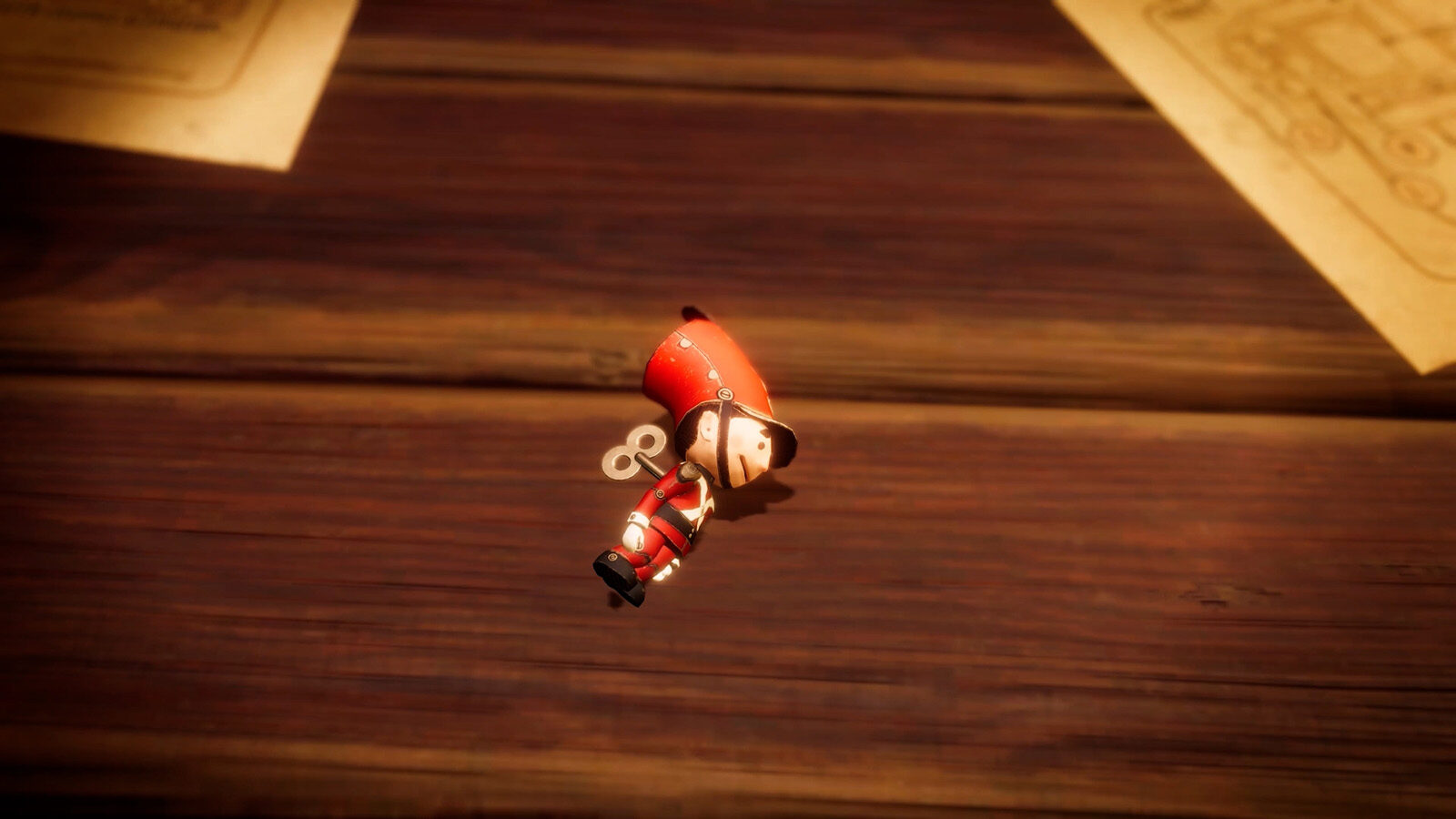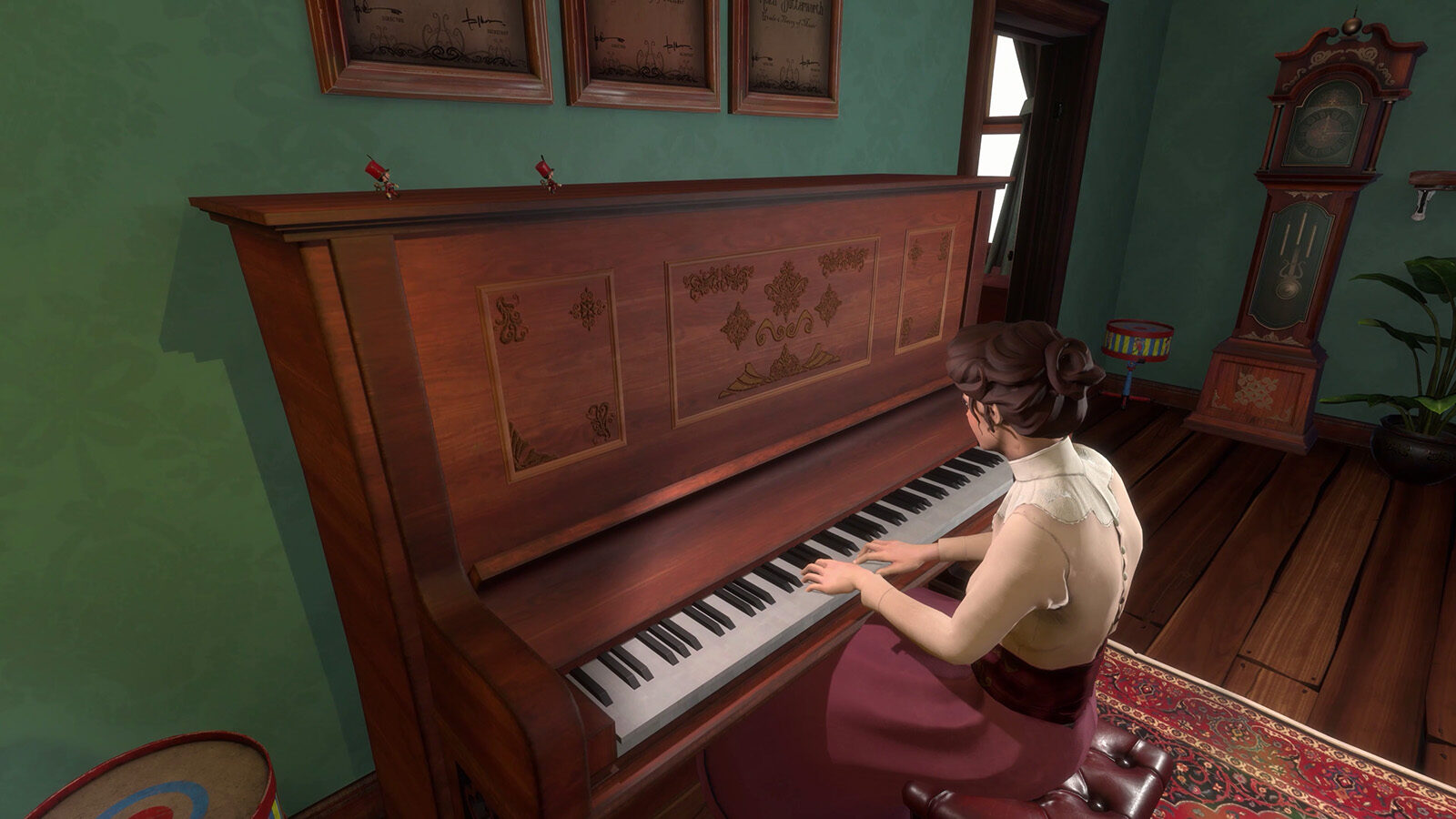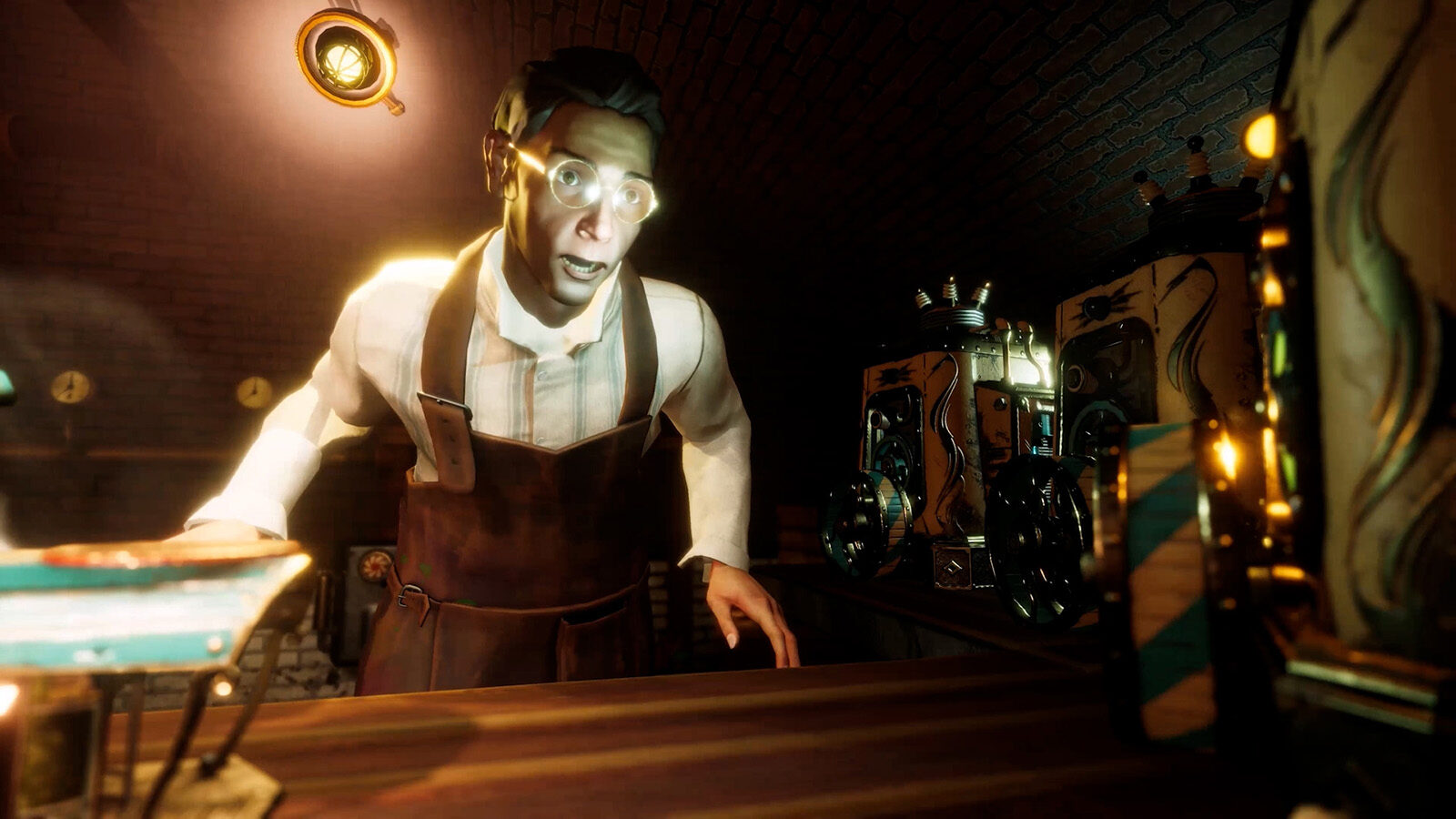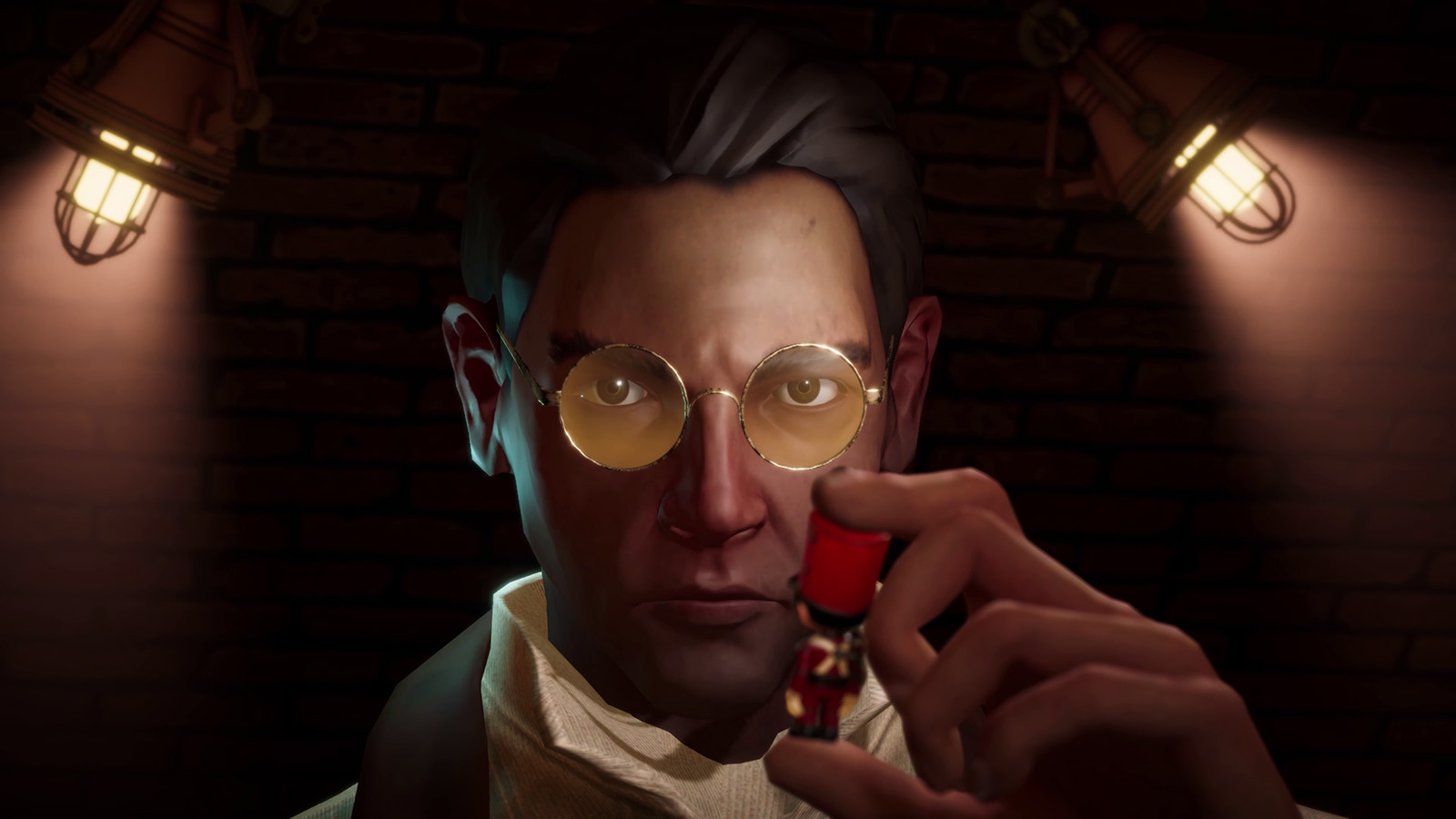Tin Hearts Director On Emotional Storytelling And The Challenges Of Creating Puzzle Games
Developer Rogue Sun is set to release its debut title Tin Hearts in April, a puzzle game set in an alternate-timeline Victorian universe that follows the emotional story of inventor Albert J. Butterworth. SimpleGamer spoke with Rogue Sun Creative Director Kostas Zarifis about Tin Hearts, the challenges of designing a puzzle game, and why meaning is important in video games.
This interview has been edited for clarity.
SimpleGamer: Tin Hearts takes a lot of inspiration from Lemmings. For those unfamiliar with the game, how does it compare to Lemmings and what does Tin Hearts do differently?
Kostas Zarifis: We do tout it as a kind of Lemmings game but the similarities end pretty quickly once you get to experience it. You open the magical box, in our case, and these single-minded toy soldiers come out and then you have to get them to a destination. But that’s more or less where it [the similarities] end. In Tin Hearts, it’s more [about] manipulating the environment around the toy soldiers.
Both games are puzzle games but, in our case, I’d say we’re probably a story game first, and then a puzzle game. That does come as a surprise to people who maybe just have experienced the first few levels which focus on the mechanics and puzzle solving but quite early on we start throwing in those hints about, “Well, actually, we’re going to tell you a story.” But we do that in a way where it’s very player-led. There is the occasional cutscene where you do something big. So, yeah, it’s Lemmings-inspired, but then also extremely different and a lot more. It’s taking that core idea and then expanding on it.
SimpleGamer: When I was playing, I unlocked different abilities – Controlling pinwheels to float soldiers, speeding up, pausing and rewinding time, directly possessing soldiers, and more as highlighted in our preview of the game – to help direct the toy soldiers. Are there more abilities in the game?
Kostas Zarifis: Our approach is if I’m playing a game for 80 hours or whatever, but it’s not that different to the first 10 hours, is that really the best use of my time? Maybe it’s [Tin Hearts] a shorter experience because we’re only a team of 15 people, but it feels fresh. Every half hour of gameplay, something new is introduced into the mix. Just when you feel like “I get it, I understand what this game is about”, it’s like, “Oh, maybe I don’t. What’s this about? What are they doing here?”
So, it’s a theme that we try to keep going throughout the entire experience. It’s like a 12-15 hour game so at our 14 [hours], you’re still going “Oh, right. Another new thing and another new thing.” That’s our approach.

SimpleGamer: You’ve described Tin Hearts’ story as emotional. Was it difficult having to balance creating something that’s fun and quirky and beautiful with the emotional, heavy side of the game’s story?
Kostas Zarifis: Yeah, it was. It needs to feel, for me, like, “Okay, I’m having fun moment to moment but am I taking something out of this into my own life and existence, and something that I can think about and ponder on?” For me, [in] the games I’ve played that I’ve enjoyed the most, there was always an element of that.
We looked at things like Disney and Pixar. So, you look at a screenshot of or an image from Up or Bambi or whatever it is that’s super colourful, equally, there’s some deep themes there. Speaking as a parent myself, we want to be careful with how emotional we go with the storytelling, but equally, we didn’t want to shy away from things that exist in life. But how do we treat them in the story, be respectful, and let the player project themselves into that story?
Yes, it’s not an easy thing to do. Hopefully, we’ve done it as best as we can but it’s a learning experience for us as a new studio, as a team, [with] lots of learning every day. From observing playtesting, it seems to elicit the right kind of reactions in terms of what we were going for. We’ll see, I guess, when we release it to a larger audience.
We want to be careful with how emotional we go with the storytelling, but equally, we didn’t want to shy away from things that exist in life.
SimpleGamer: What was the inspiration behind Albert and his story? Did you draw from any personal experience?
Kostas Zarifis: For sure. I think with any creative endeavour, you put a bit of yourself in what you do and I think that’s a good thing. For me, like anything I’ve experienced, whether it’s a book or a movie or a game, you feel like there are moments of connection where you feel like you’re having this dialogue with the people or the person that came up with this thing. Those are very powerful moments, and I think to have those moments, you have to put a bit of yourself [in] because we’re all human beings, and we all share this experience of human existence. So, if you put a bit of yourself in there, then chances are that someone else will be able to latch on to some of that and connect.
I guess the sort of themes that we explore are like, how do you balance this inquisitive and restless nature that comes with creativity? And how do you balance that with life? Life doesn’t stop for creativity and innovation. How do you balance these things? How do you find the space to be creative but also be a dad in the case of Albert or a husband? And what does it mean trying to manage that at all times? What does it mean for your work? What does it mean for your relationships? And how do you deal with things that wedge themselves into this balance that you might have? It’s a precarious balance because life goes on constantly so something might throw that balance off entirely.

SimpleGamer: As a player, it was difficult trying to solve the game’s puzzles. What was it like designing that? It must have been quite difficult.
Kostas Zarifis: For sure. It’s a huge challenge. Myself, and speaking for everyone at Rogue Sun as well with the types of personalities that thrive in this environment of hard challenges, you need to have the context there for someone to have just the right amount of challenge and not be overwhelmed. It’s a fully realised 3D space. It needs to make sense from an architectural, functional point of view, right? You can’t have the fountain on the side or upside down or on the wall, even if it means that I could have soldiers landing there. But no, it doesn’t work visually, aesthetically, architecturally. We need to be able to have our many stages and spaces where we continue doing this exposition of the story we’re telling, [and] it needs to work with all the tools in the tech that we’re building for the level design.
So there’s lots of different factors that you have to balance. It’s a big challenge. We start with concepts and then very quickly, we try to dive into the engine and start prototyping things because that’s where your assumptions usually fail. The sooner you know about that the better and you can react, but then the most important thing is watching people play, and then again we discover more failed assumptions. It’s part of the process, and then we go, “Right, okay, this is not working quite how we had in mind. Let’s adapt, let’s change.” Yeah, it’s a big challenge.
I love seeing people play for the first time, especially people who have been playing the game organically.
SimpleGamer: What was your favourite section of the game?
Kostas Zarifis: Ah, this is like asking about your favourite child. I’d have to say Act Four. Act Four is very interesting because it’s where the experience kind of culminates both from a storytelling point of view, but also from a gameplay point of view. We call it internally the final boss. There’s no fighting of any bosses but that final puzzle is proper. I love seeing people play for the first time, especially people who have been playing the game organically, and they’re well-equipped at that point to take something like that on.
When someone new or someone [who] has been playing the game gets to that point, and they enter this space and they look around… I mean, if you thought the garden [was huge] that’s just before the midpoint of the game. So imagine, seven [or] eight hours after that of adding mechanics, and then seeing a version of this with all the new mechanics that were introduced in Act Three as well. I guess I love that part of the game because it’s kind of like the combination of everything that has been building up through the course of the game.

SimpleGamer: What’s your comfort game? Your favourite game that you play when you’re not working on Tin Hearts?
Kostas Zarifis: I like a lot of different genres. I was going to say maybe [I’m] not that much into sport, but then I do play quite a bit of FIFA. I recently finished The Last Of Us Part 2.
SimpleGamer: What did you think?
Kostas Zarifis: I loved it. I was blown away by it. I was kind of frustrated that I put it off for so long because I remember all the chatter around it. I think I was sat there looking at the screen for 20 minutes just pondering life, but it was unbelievable. I thought it was brilliant, even better than the first one and the first one was amazing. I’m not quite sure why there was some negative chatter around it. I didn’t really look into it.
SimpleGamer: Are you watching the television show?
Kostas Zarifis: I am not. I am waiting for it. Because I’m the kind of binge-watch person so I don’t think I can do the one week, now wait for the next episode. I struggle with that. So I’m going to hold on for a while longer then just have a massive binge session.
SimpleGamer: What’s next for Rogue Sun? Are you going to be doing DLC or are you already working on something new?
Kostas Zarifis: Yeah, we’d love to. We’ll have to see how the game is received. All the previews and this early exposure of it to the world seem very positive, which we’re very grateful for. We’d love to do more in the world of this game. There’s certainly many ideas. There’s other stuff within Rogue Sun that we’ve been exploring, some of it with Wired Productions as well, which is great because we have a lovely relationship. There’s definitely going to be more things in the future.
Tin Hearts, developed by Rogue Sun and published by Wired Productions, launches for PC, Nintendo Switch, and PlayStation and Xbox consoles on April 20th, 2023. It will also launch later this summer for PS VR2, Meta Quest 2, and PC VR.

